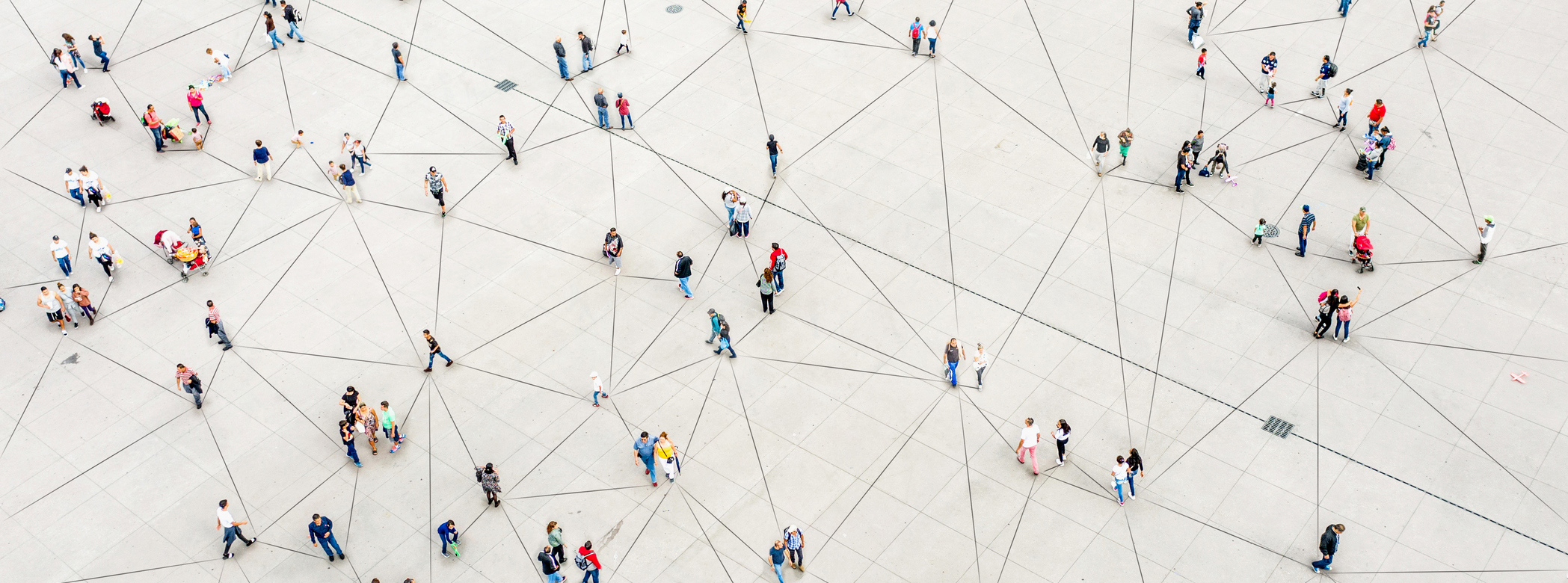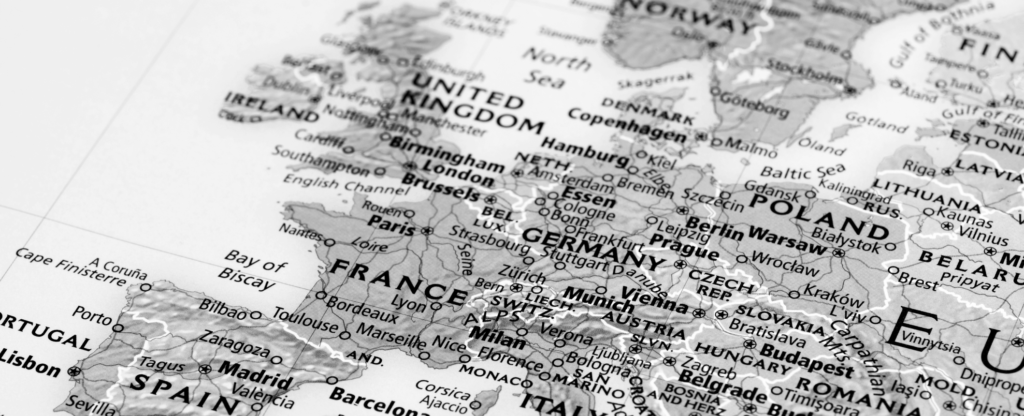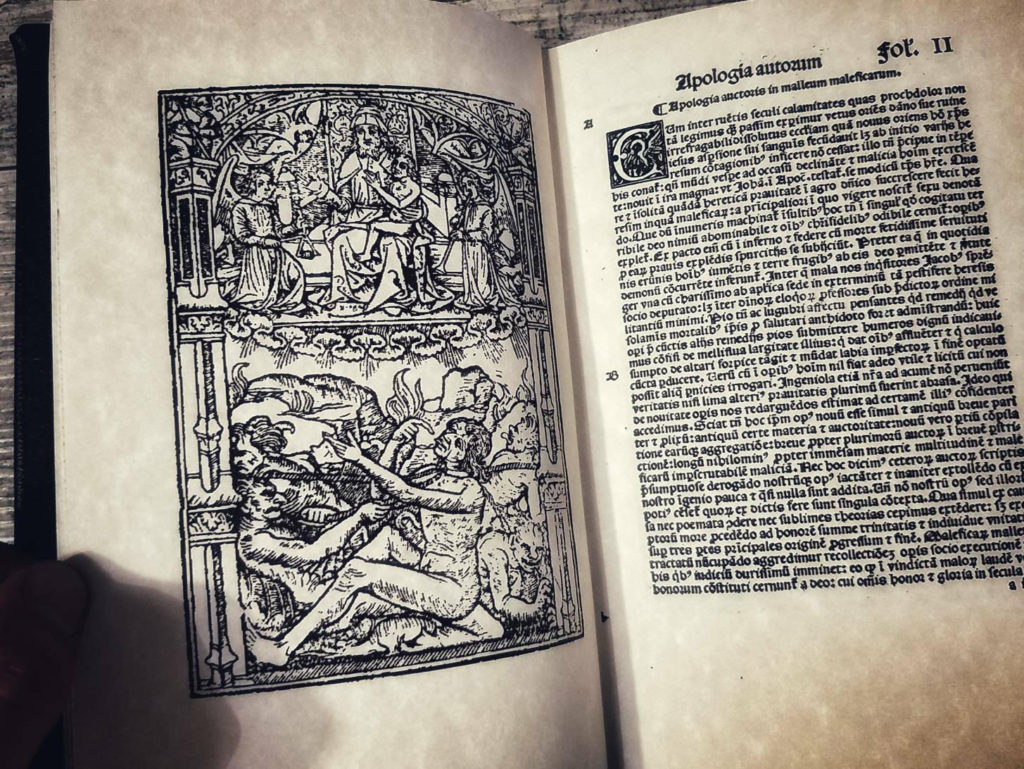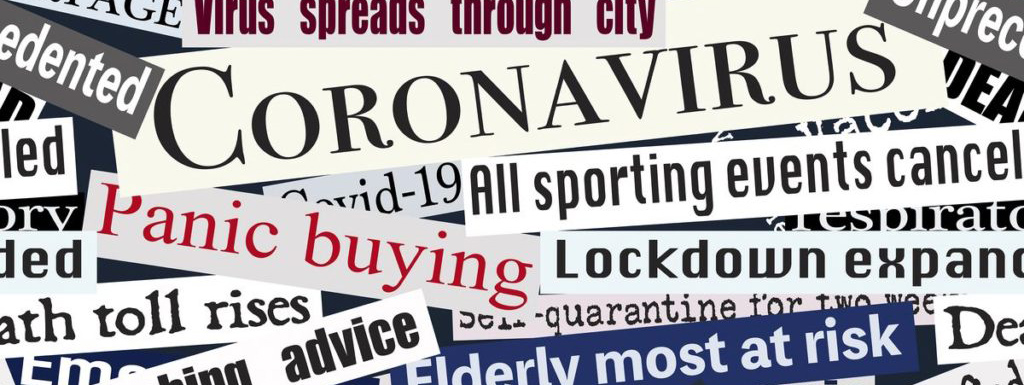
witches, social media, and the search for what is real
“I give up.”
“I don’t even know what’s true anymore.”
These are comments I’ve seen in the last month on my Facebook feed related to some of the conspiracy theories that have made their way around the internet about the global pandemic we find ourselves in.
Why are conspiracy theories so attractive? What is it that they provide for us, especially in a time like this?
There are many ways to approach these questions and many dynamics that play into them. I’ve done some research about these questions and discovered things that have led me to believe that at least part of the answer has to do with the new technology of social media.
The Novelty of Social Media
Social media (platforms that allow users to create profiles and post original content) is still very new to human beings. Facebook was made available in 2006 to everyone over the age of 13 with an email address. 14 years. That’s it. In the grand sweep of history, that’s nothing.
When new technology is introduced into human society, it always has both positive and negative effects. Most times, the negative effects are unintended, which can make them all the more detrimental because we are not prepared for them.
In thinking about this over the last month or so, I thought, “I wonder if there was ever a new technology introduced in the past that has had such a wide reach as social media and what its effects were?” That question drove me all the way back to 1440 in Europe and the invention of the printing press.
The Novelty of the Printing Press
There are many similarities between the introduction of the printing press and the advent of social media. The printing press provided a never-before kind of access to information and ideas for the “average person.” It placed the power of words and images directly into the hands of massive numbers of people like had never been seen in human history.
The positive effects of the printing press are still reflected in our global culture today. But what about the negative effects?
Before I talk specifically about those, I want to give you some historical context. At about the same time as the printing press was invented, there were other massive forces at work in Europe.

Social Upheaval in Europe in the 1400s
The religious and governmental systems were basically the same thing. The church decided what was true and real, and they had worked alongside the aristocracy for centuries to maintain a social order where there were nobles who owned land (living mostly in comfort) and serfs (living mostly in poverty and squalor).
But with the beginnings of industrialization, this feudal order was being completely disrupted. People were moving to cities and leaving the life of farming that their families had known for centuries. Women could actually get a job of their own in the city, raising questions about gender roles and upending well-established family dynamics. The close quarters of city living caused diseases to spread more widely and rapidly. And the church was beginning to lose its hold over every aspect of life.
For the first time in centuries, people had options and choices when it came to the direction of their lives. This brought great freedom, but it also brought fear and confusion. Massive numbers of people had lost the things that gave meaning and purpose to life. The literal foundations of society were either shifting or crumbling away completely.
People began to do what they always do in times of uncertainty and massive societal shifts: they looked for someone to blame. It must be someone’s fault that I’m feeling this way and going through all of this. There must be something I can do to GET BACK to a place where I felt secure and knew my place in the world.
Similar Upheaval in the U.S. in the 1900s and Early 2000s
These changes in European culture during the time around the invention of the printing press mirror the level of change in our U.S. culture over the past 100-150 years: the elimination of slavery (which in some ways reflected the feudal system discussed above), massive migrations of people to new places (especially into cities), ever-changing technology offering innumerable options for gainful employment, the civil rights movement promoting greater integration and empowerment of an entire race of people who had been marginalized, oppressed, and hated, the erosion of trust in our government leaders through things like the Vietnam War, the arrival of diseases like HIV and the fear that went with them, the ongoing shift related to the role of women in society and in the family, the long, slow erosion of the influence of church/Christianity in American life, the noticeable increase of natural disasters (and discussion about climate change), and the increased monetization of major news outlets resulting in news as entertainment (leading to a significant decrease of trust in “the media”).
All of these societal forces have added up to widespread feelings of fear (because I don’t know what my life is going to be like), distrust (because I’m skeptical of any large institution), and confusion (because I don’t know where to find meaning and purpose). Significant societal shifts, our pace of life, and affinity for busyness have created conditions where we feel an underlying sense of insecurity but we don’t acknowledge it or even realize it.

The Witch’s Hammer: Printed in 1480
Within 40 years after the arrival of the printing press, the church in Europe (an institution that was losing its power) oversaw the writing and production of the Melleus maleficarum (The Witch’s Hammer).This book, endorsed by the church and visually designed to appear authoritative, said that witches were to blame for the upheaval and deep sense of hopelessness that people felt. And everyone needed to do their part to eliminate them.
The Melleus maleficarum didn’t present a set of ideas that would actually move society forward by offering direction for people to be and live in a healthy way in the new world that was emerging. Instead, it offered an ideology based on … wait for it … (taken from the article linked below)
• “an authoritative explanation of events,” —not based on proof or evidence, but on opinion and conjecture while at the same time presented as fact
• “suasive images” —pictures that had the power to arouse emotions
• “directed mass action”—something needs to be done, so we should all take action against them personally (not through official channels or courts)
… all with “a promise that this course will restore the pre-existing conditions.” (Let’s GO BACK to a time and a place where things made sense.)
“At one point it (The Witch’s Hammer) was only second to the Bible in popularity.” It went viral.
And because people were in a vulnerable, fear-based state that they probably couldn’t articulate and weren’t fully aware of, they bought into it. This book, delivered through a new technology that put information directly into the hands of the people, gave them an authoritative voice to listen to. It gave them someone to blame for the fact their lives felt out of control. Witches were a behind-the-scenes, working-from-the-shadows power base that controlled people and societies. If you knew about witches, you had special knowledge. You had cracked the code. It gave you a feeling of power and control that you were longing for … and a place to focus your fear, anger, and hate.
And over the next 200+ years, between 60,000-100,000 women were accused, questioned, tortured, and killed by “regular people” (not governments or institutions) based on this ideology. The Witch’s Hammer motivated people to act based on fear and hate … ultimately driving them to violence.

Conspiracy Theories and Social Media
In a cultural climate similar to Europe of the 1440s, the internet and social media appeared, putting information in the hands of the masses; and not just information, but the ability to post and share and repost their own thoughts or the thoughts of other people.
And what have we done with it? There has certainly been a positive effect in our lives—we can connect with people all across the country (and the world!), whether for work or for fun. We can find information through a quick Google search that would have previously taken a visit to the library or consulting an encyclopedia (remember those?!?).
But we’ve also used social media to find someone to blame—someone to blame for the way we feel, someone to direct our anger toward, someone to make us feel more secure because they give us an enemy to fight against (reducing our feelings of powerlessness), someone to give us an identity (because we have a tribe to belong to with strongly stated, authoritative values and beliefs).
And if an article or political ad or YouTube video appears (especially one that has been put together with heavily emotional images and music), giving us a clear enemy or someone to blame, we are drawn to it. And especially if the content tells us about a secret power that’s working from the shadows, conspiring against us that we’ve been previously unaware of, we believe it. It seems to make sense of the feelings of fear and confusion and a longing for control that hover underneath our collective psyche.
And so we are drawn in. And we repost it. We share it. Even though it does not reflect reality. Even though the claims in these articles or ads or videos are based on falsified evidence. But we’re honestly not concerned with evidence, just in sharing the secret knowledge we’ve come across that seems to confirm what we feel: there’s something working against us.
Why Do Christians Seem Predisposed to Believe Conspiracies?
I believe Christians are predisposed to conspiracy theories because of our belief in the unseen. Not only that, but we have been taught that Christianity and Christians themselves are under attack in the United States. And for hundreds of years now, even in the U.S. where we have unprecedented freedoms, we’ve been told that we need to be on high alert because the government, academic institutions, and “the media” are at war with Christianity and we need to fight against them.
Maybe it’s easier to believe that there are hidden powers beyond our control that are manipulating world events than it is to admit our weakness and feelings of vulnerability in the face of a new virus that we don’t understand and forces enormous changes to our daily lives. Maybe it’s easier to consume viral content on the internet. Maybe it’s easier to think that this virus was caused intentionally by a foreign country to attack America. Or it’s a plot by a former technology magnate as a way to insert tracking devices in us or make money off of vaccines. Maybe it’s easier to strap on an AR-15 or make hateful signs to protest against leaders we disagree with as a way to feel a sense of power and control than it is to admit deep fears about what our collective future might look like.
It’s always easier to blame than it is to take responsibility. It’s at the heart of the brokenness of humanity (see Genesis 3). We will search for someone or something to blame rather than taking ownership for our role in what has been broken in society (either through action or inaction), acknowledging our lack of control in the face of a global pandemic, and stepping into our God-designed role as His representatives on earth as healers and peace-makers.
What Now?
I believe that unless we as a nation (and especially as Christians within that nation) can discover a new way to live and function in the world, we are in for hundreds of years of division and strife. Our fear (because we can’t control all the changes in our lives) will overwhelm us and drive us to continuously search for someone or something to blame and maybe even drive us to violence—maybe not physical violence (for most of us), but a violence of the heart that comes from hate and produces division.
So what if … the next time we’re tempted to blame and direct our anger in violence toward someone of another race, political party, belief system, or evil, hidden organization, we redirect that same energy into something that brings people together, that bridges divides instead of widening them, that seeks to understand and heal the pain of others? What kind of society would that create? What kind of interaction would that produce? What kinds of things would we do?
A focus on the immediate and ultimate well-being of those around us—no matter who they are or what they believe—is what will lead us into the life of Christ, the life we were made for.
The solution to fear and lack of control is not blame or violence or hate or spreading secret knowledge about hidden forces. Those things don’t solve anything. And they further fracture our society.
Let’s not repeat the mistakes of the past.
Let’s not go back again to blame and divisions because they’re easier and provide momentary relief from our pain and struggle.
Let’s find a new way forward—a way that’s based on compassion, shared suffering, and healing.
This is the eternal way.
The way toward a peace that lasts.
https://blogs.ubc.ca/etec540sept09/2009/10/31/unintended-consequences/
Carol
This is so outstanding!